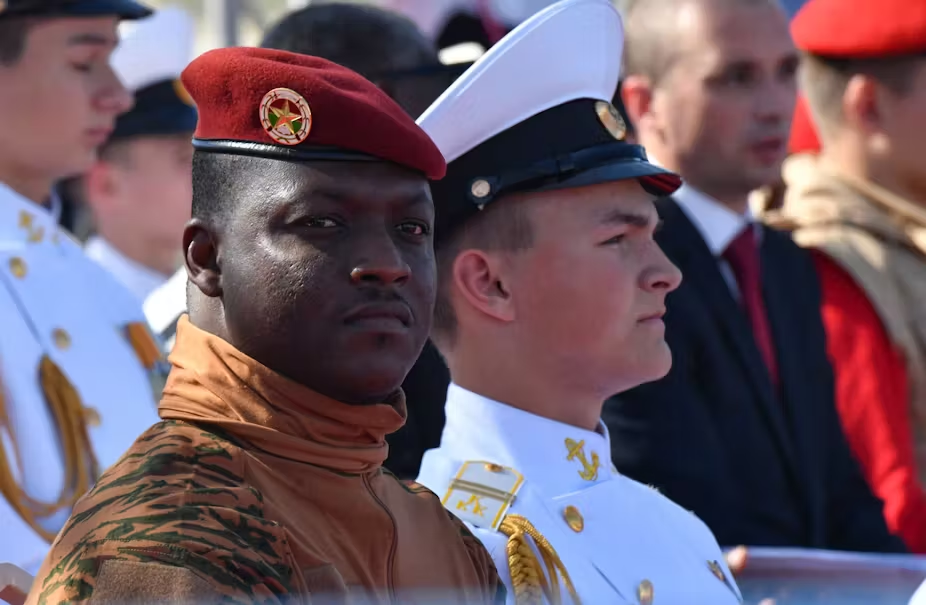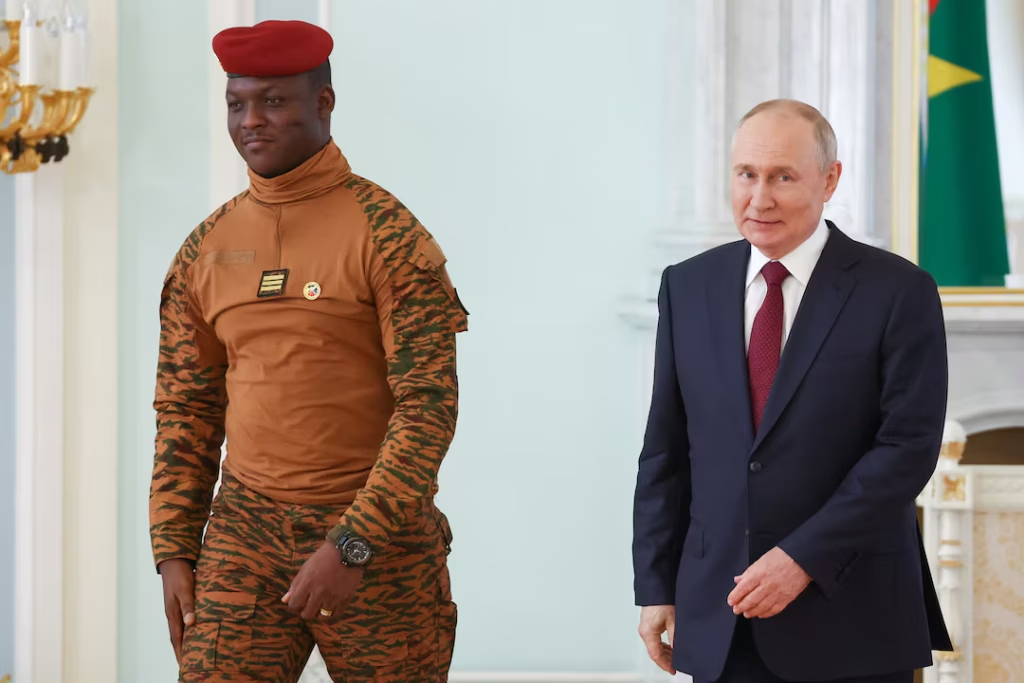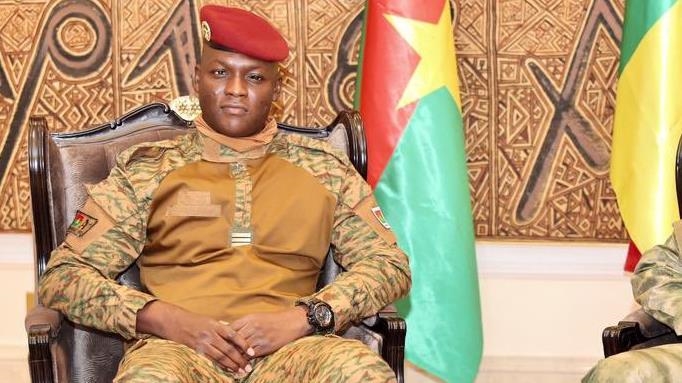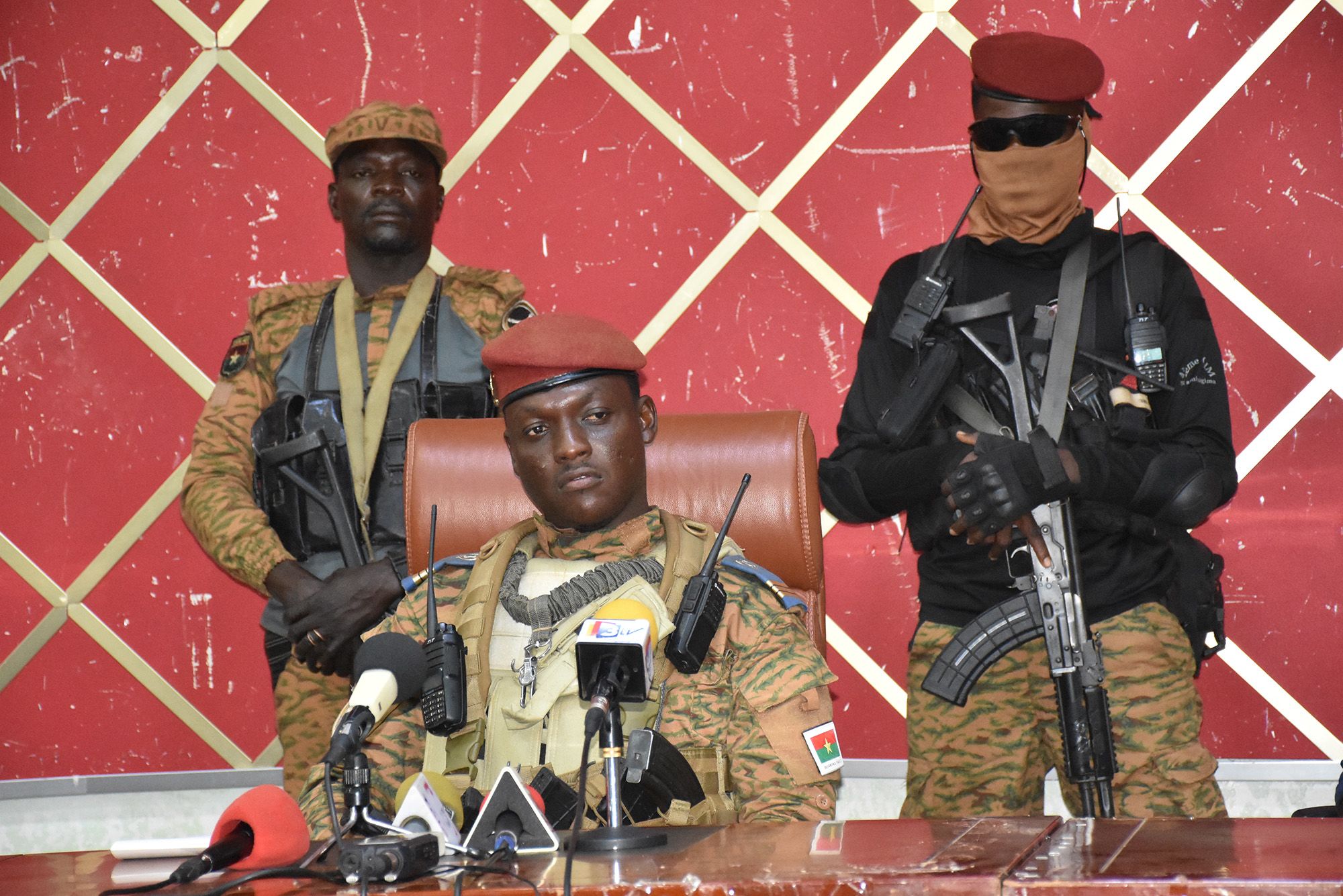As of April 2025, the interim president of Burkina Faso is Captain Ibrahim Traoré, who assumed power following a coup on September 30, 2022. At the time, he was the world’s youngest head of state, taking office at age 34. Traoré’s leadership is characterized by a strong anti-colonial stance, a focus on national sovereignty, and a commitment to combating jihadist insurgencies within the country.
Political Developments
In May 2024, a national consultation extended the transitional period by five years, allowing Traoré to remain in power until at least July 2029. This extension also permits him to run in future elections. The decision was controversial, as most political parties boycotted the consultations, raising concerns about the democratic process.

Security and Foreign Policy
Facing escalating jihadist violence, Traoré declared a “general mobilization” in April 2023 to bolster the military’s efforts. He has emphasized that elections cannot proceed until security is restored. Under his leadership, Burkina Faso expelled French forces in early 2023 and has since strengthened ties with Russia, including the deployment of Russian paramilitary forces in the country.
Economic and Social Policies
Traoré has prioritized economic self-reliance, particularly in the gold mining sector. In November 2023, his government approved the construction of the country’s first gold refinery to process gold domestically. Additionally, in February 2024, he suspended export permits for small-scale gold producers to combat illicit trade.
In a notable decision reflecting his development priorities, Traoré declined Saudi Arabia’s offer to build 200 mosques in Burkina Faso. Instead, he requested investment in infrastructure projects like schools and hospitals, emphasizing the need for initiatives that directly benefit the nation’s development.
Traoré’s leadership style and policies have drawn comparisons to former revolutionary leader Thomas Sankara, particularly in their shared emphasis on anti-colonialism and national self-reliance.
Captain Ibrahim Traoré’s leadership in Burkina Faso, since his ascent to power in 2022, has had a profound impact on the country’s security landscape. While his administration has implemented significant military reforms and sought new international partnerships, the overall security situation remains precarious.

Military Reforms and Strategic Shifts
Under Traoré’s direction, Burkina Faso has undertaken substantial military restructuring. This includes the dismissal of 16 senior officers accused of misconduct or disloyalty, aiming to consolidate control over the armed forces. Additionally, the establishment of a Special Brigade for Rapid Intervention reflects efforts to enhance the military’s responsiveness to insurgent threats.
In terms of international alliances, Traoré’s government has pivoted away from traditional Western partners, notably France, and has strengthened ties with countries like Russia, Turkey, and Iran. This shift has facilitated the acquisition of advanced military equipment, including Turkish Bayraktar TB2 drones, to bolster counterinsurgency operations.
Persistent Security Challenges
Despite these initiatives, Burkina Faso continues to grapple with severe security challenges. The country has become the most terrorism-affected nation globally, with over 8,400 fatalities reported in 2023 alone, marking a significant increase from the previous year . Armed groups affiliated with al-Qaeda and ISIS remain active, controlling substantial portions of the territory and perpetrating frequent attacks.
The humanitarian situation is equally dire, with more than 2.1 million people displaced due to ongoing violence. Many of these individuals, particularly from the Fulani ethnic group, face discrimination and lack adequate support, exacerbating ethnic tensions and undermining social cohesion.

Human Rights and Governance Concerns
Traoré’s administration has also been criticized for its approach to governance and human rights. Reports indicate a crackdown on dissent, including digital surveillance of critics and instances of enforced disappearances . Such actions have raised concerns about the erosion of civil liberties and the suppression of opposition voices.
In summary, while Captain Ibrahim Traoré has implemented notable military reforms and sought new international partnerships to address Burkina Faso’s security issues, the country continues to face significant challenges. The persistence of extremist violence, humanitarian crises, and concerns over governance and human rights suggest that a comprehensive and inclusive strategy is essential for achieving lasting stability.

Leave a Reply